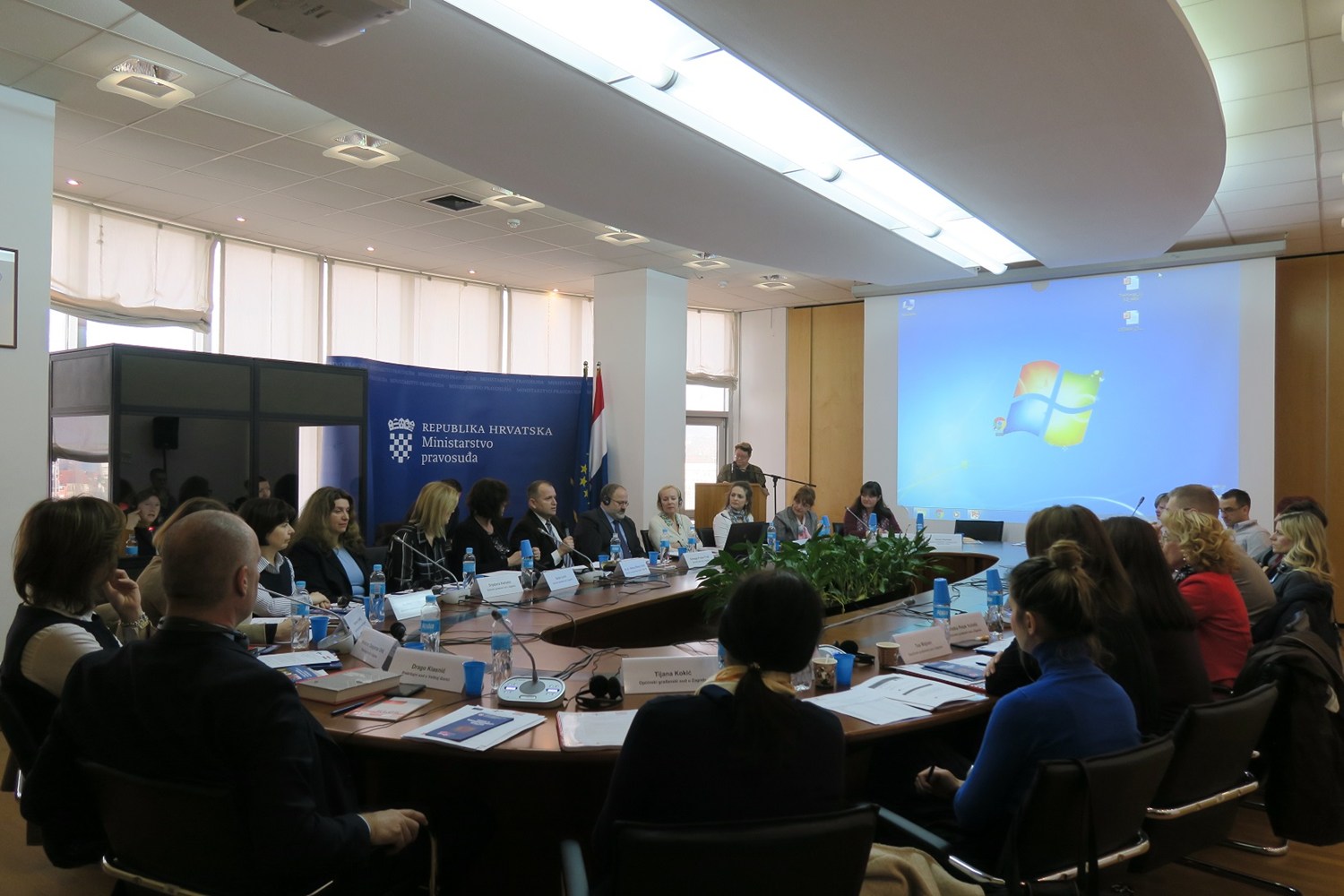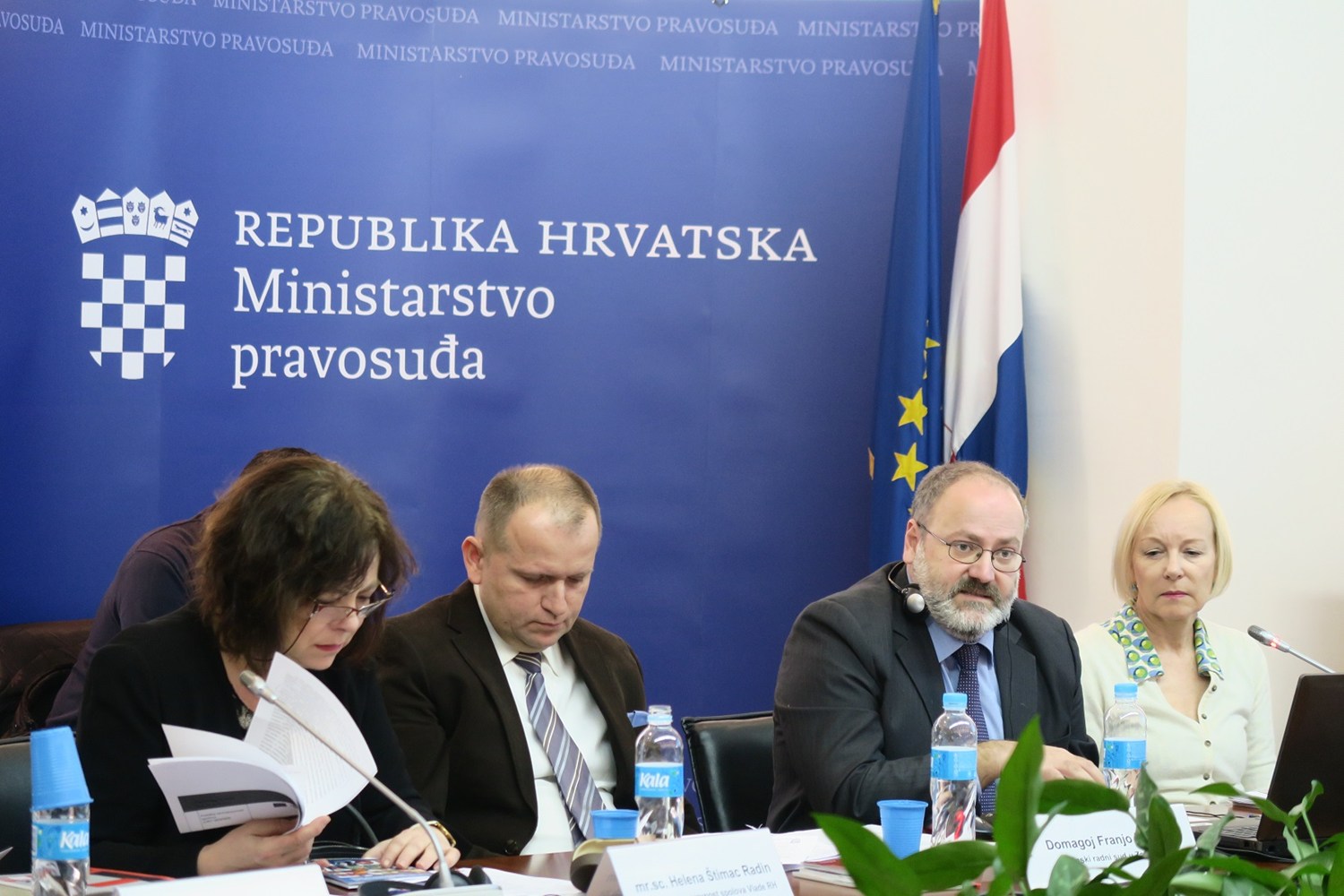Gender Equality Trainings for Judges in Croatia
In the framework of the Twinning project “Support to Gender equality“, three trainings for different groups of referees/judges and court advisers took place in February and March 2017 in order to strengthen the capacities of Croatian judges on EU gender equality law and its application in Croatia.
All three trainings were conducted by Ms. Doris Obereder, a judge at the district court Leopoldstadt in Vienna, and Mr. Dieter Schindlauer, a human rights expert of the Ludwig Boltzmann Institute of Human Rights. Additionally, Croatian judges acted as co-trainers to bring in their specific expertise in the Croatian context: Mr. Domagoj Frntić was part of the trainer team in the first and second training and Ms. Slavica Garac in the third training. The trainings provided an overview of the EU gender equality law and linked EU Directives with Croatian legislation. The aim of the trainings was to enhance the knowledge of judges of the national anti-discrimination legislation and practice of the European Court of Human Rights and the European Court of Justice.
The first training took place on 23th February 2017 at the Judicial Academy in Zagreb. It was attended by 19 judges and judicial advisers from municipal civil court and country courts. The key concepts of the EU Gender Equality Directives were presented to the participants, followed by case law of the European Court of Justice. Thereafter, three case studies were presented related to maternity leave, harassment, and indirect discrimination. The participants worked in small groups on these cases and were actively involved in a discussion about possible solutions.
On 14th and 16th March 2017, the second and third training took place for the second and third group of referees / judges and court advisers from all over Croatia. In both trainings, input was given on the Convention on the Elimination of All Forms of Discrimination against Women (CEDAW) and the key concepts of the EU Gender Equality Directives, as well as case law of the European Court of Justice. Thereafter, case studies about pregnancy and dismissal, access to goods and services, and sexual harassment were introduced by the trainers and worked on by the participants, followed by a lively discussion on the issues at stake.
According to the feedback received, the participants were very satisfied with the content and methodology of the training. They appreciated the interactive approach and the expertise of the trainer team, and were able to deepen their knowledge on the EU gender equality law and its application in Croatia.
Based on the materials and experiences of the trainings, a manual for judges and legal practitioners on “Gender Equality Law in Practice” has later on been compiled and published.
b. Ms. Helena Štimac Radin, Head of the Governmental Office for Gender Equality, together with the trainer team of the first training: Mr. Domagoj Franjo Frntić, Mr. Dieter Schindlauer and Ms. Doris Obereder
c. In conversation about the EU gender equality law


